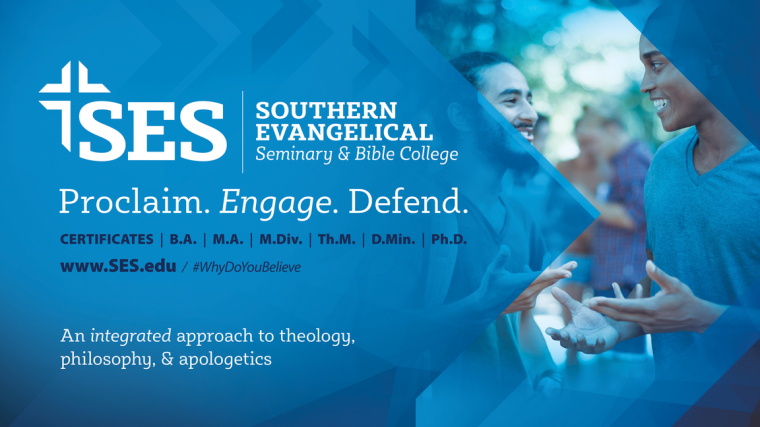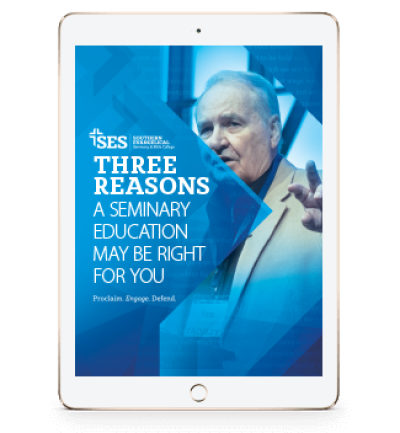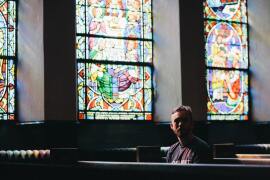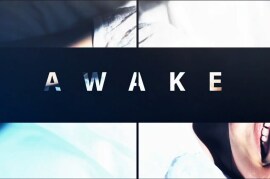Five New Year’s Resolutions to Help Reverse Error in the Church

Every two years Ligonier Ministries and LifeWay Research partner to survey the state of theology among church-going American adults. These are not your unsaved neighbors and co-workers. They are the people that sit next to you and me most Sundays (at least in pre-COVID days!). Sadly, the troubling study shows significant error and heresy in the church related to apologetics, theology, and social issues. Here are a few examples:
Apologetic Error and Theological Heresy
- 34% agree that, “Religious belief is a matter of personal opinion; it is not about objective truth.”
- 55% agree that, “Jesus is the first and greatest being created by God.”
- 65% agree that, “Everyone sins a little, but most people are good by nature.”
- 66% disagree that, “Even the smallest sin deserves eternal damnation.”
Social Error
- 58% agree that, “Worshiping alone or with one’s family is a valid replacement for regularly attending church.”
- 49% disagree or are unsure that, “Abortion is a sin.”
- 57% agree or are unsure that, “The Bible’s condemnation of homosexual behavior doesn’t apply today.”
- 48% agree or are unsure that, “Gender identity is a matter of choice.”
As an assistant professor at Southern Evangelical Seminary and Bible College (SES) in my fifteenth year of teaching an integrated approach to theology, philosophy, and apologetics, this study is discouraging to say the least. At this point you may be thinking I will turn this article into my defense of the correct positions on each of the statements. Or perhaps I will turn it into a class that will show how Christian theology is a true and trusted approach to understanding God, the world, and the Bible. I wish I could, but instead, I will challenge you, the reader, to do five things that may help turn the tide of apologetic, theological, and social errors in the church.
Resolution One: Read a Good Book
Well, not just any book. And yes, it is a given that you should read the Bible. I encourage you to read a book written by a credentialed scholar, respected by his peers on apologetics, theology, and social issues. I offer below recommendations for basic beginners to senior scholars. Even if you have already read my recommendations, if it has been more than a year, I encourage you to read them again. The older I get, the more I realize how much I have forgotten when I reread a book.
Without apology, I recommend SES co-founder Dr. Norman Geisler’s books. For the beginner in apologetics read Twelve Points that Show Christianity Is True and for the advanced, Christian Apologetics. For social issues get a copy of Legislating Morality and then Christian Ethics, and for theology, I recommend Survey of Bible Doctrine and then Systematic Theology. I would also recommend our own SES ebook, Why Trust the God of the Bible?
Resolution Two: Watch or Listen to Good Lectures
I am not talking about a sermon, but a lecture on apologetics, social issues, and theology. The internet and social media are filled with scholars who have shared their teaching on these and many other topics. On the SES Mobile App you will find over 10 years worth of free material from the SES National Conference on Christian Apologetics featuring talks by thinkers like Norman Geisler, Josh McDowell, Frank Turek, Hugh Ross, Chuck Colson, J. Warner Wallace, Chip Ingram, Richard Howe, Richard Land, and so many more. In my review of the talks, all of the errors and heresies mentioned above are covered. In addition, you can find a number of debates and lectures on the SES YouTube channel and the SES podcast. There is no shortage of resources at your disposal.
Resolution Three: Take a Seminary Course
Seminary is no longer just for the pastor. It is for every Christian who is concerned about more effectively proclaiming and defending the Gospel in a post-Christian culture. In addition to degrees, SES offers several for-credit certificates, as well as the ability to audit individual courses. Classes can be live-streamed via our immersive digital campus experience.
A seminary course does two things for you that you will never get from a book or lecture. First, as one of my professors was fond of saying, “… not everything you need to know is in the textbook.” Never a truer statement has been uttered. The emphasis and connections between concepts as well as the experience and wisdom of a seasoned scholar will never come through a textbook.
Second, a classroom environment, even a virtual classroom, will cause you to learn in a way that a textbook or talk alone will never do. Only teachers can cause their knowledge to come to exist in the student and provide an environment to ensure it stays there. But be careful—it is addictive. Over the years I have seen students start with just taking one course, with no other intentions, and before they knew it, they were walking across a stage to receive a diploma. Learn more about why a seminary education may be right for you by downloading our free ebook HERE.
Resolution Four: Teach or Lead a Class in Your Church
Education is never finished until you complete the cycle by teaching and leading others. In fact, if all you did were resolutions one through three, you would still feel, and actually be, very incomplete. I would suggest this is the breakdown that has resulted in the alarming statistics cited above. It is not that the church does not have enough teachers; it is that those teachers are ill prepared and unwilling to tackle today’s apologetic, social, and theological issues. This is exactly why SES exists and why we focus on providing integrated training in theology, philosophy, and apologetics. The stats above will not move in the right direction until an army of qualified believers leads and teaches in today’s churches. Essential to the success of your small group and church is creating a caring, sharing, and correcting community that manifests the love for the brethren so that the world will know that you are disciples of the uncreated risen Savior and Lord Jesus Christ (John 13:35).
Resolution Five: Repeat Steps 1-4 for the Rest of Your Life
Of the statistics revealed above, which one do you think is the scariest? In my opinion, it is that 58% of respondents agreed that “Worshiping alone or with one’s family is a valid replacement for regularly attending church.” I don’t know about you, but as a Christian educator such a statistic sends chills up my spine. If someone walks into your church on Sunday morning to worship, you at least have the opportunity to fix all the problems listed above if you have done the first four resolutions. But if they do not come to your church, you cannot fix anything, no matter how much preparation and education you have completed. This is the enemy at his best. This world is filled with demonic and social opposition to our personal growth as a disciple of Christ and to our churches as a body of growing believers living life together.

Therefore, we must do each resolution clothed in the full armor of God (Ephesians 6) and in communion with all the saints (1 Corinthians 12). Yes, no matter what step you are on, go to the next one. I admit that it will not be easy to keep the cycle going, but we must until the Lord returns, no matter who opposes us or what the statistics say. Know that SES stands ready to help you on your journey remembering our mantra to: “Train trainers, teach teachers, and disciple disciplers so the cycle never ends.”
To learn more about why a seminary education may be right for you, please download our FREE ebook today!
Our culture is more hostile to Christianity, even though it understands Christianity less than ever before. To effectively engage with the culture, you will need a deeply integrated theology, philosophy, and grounding in apologetics—the bedrock of a degree from Southern Evangelical Seminary & Bible College. Learn More






